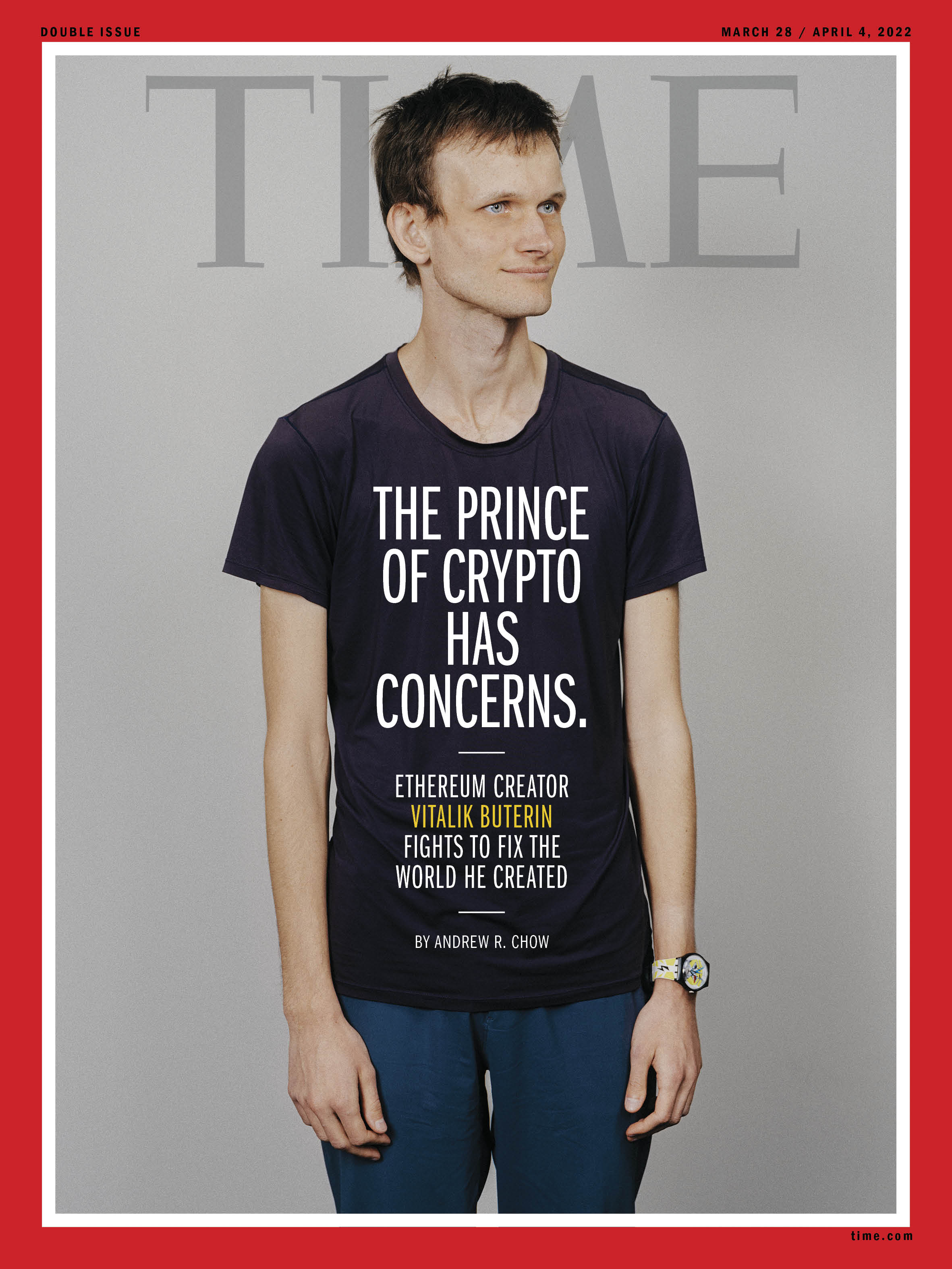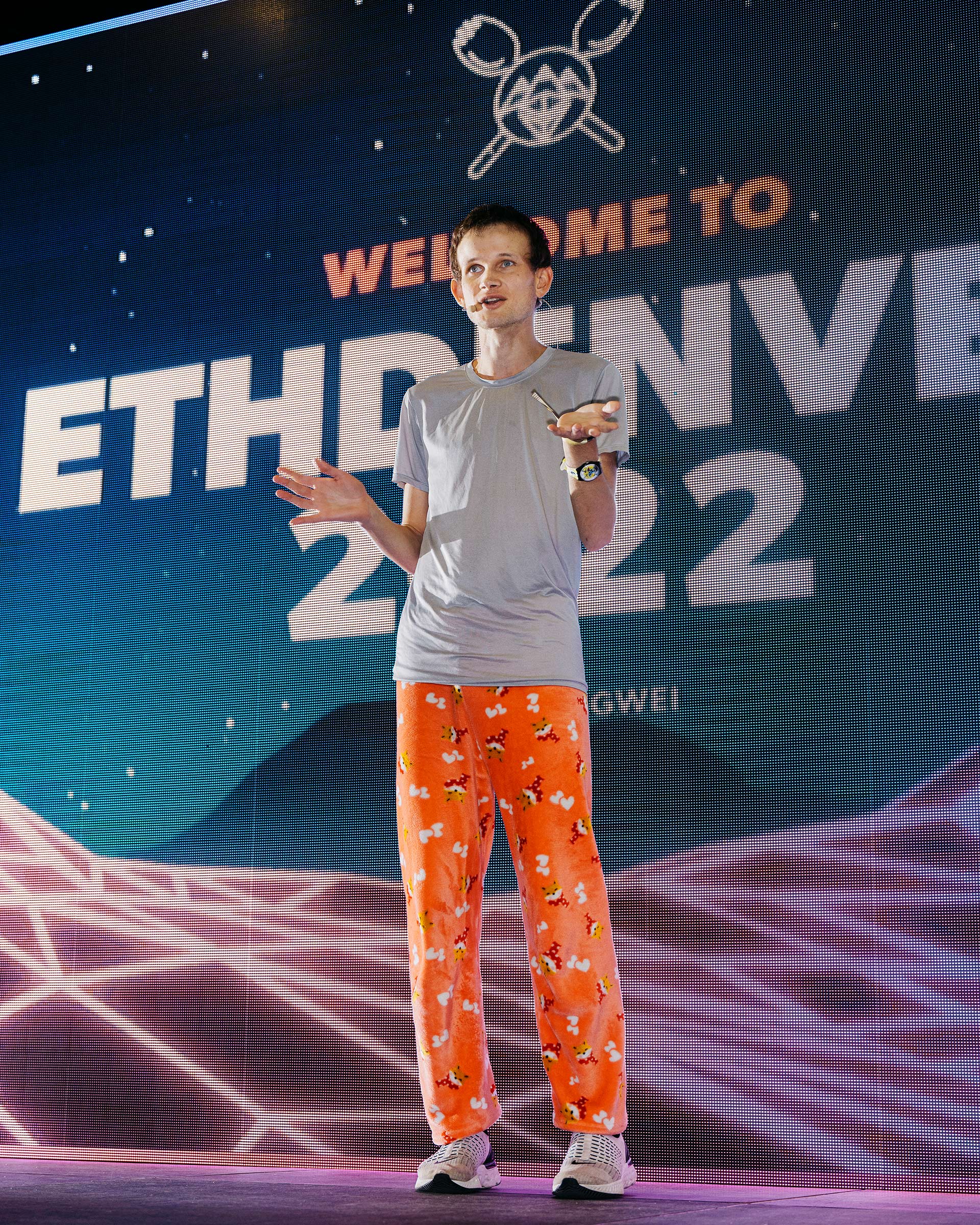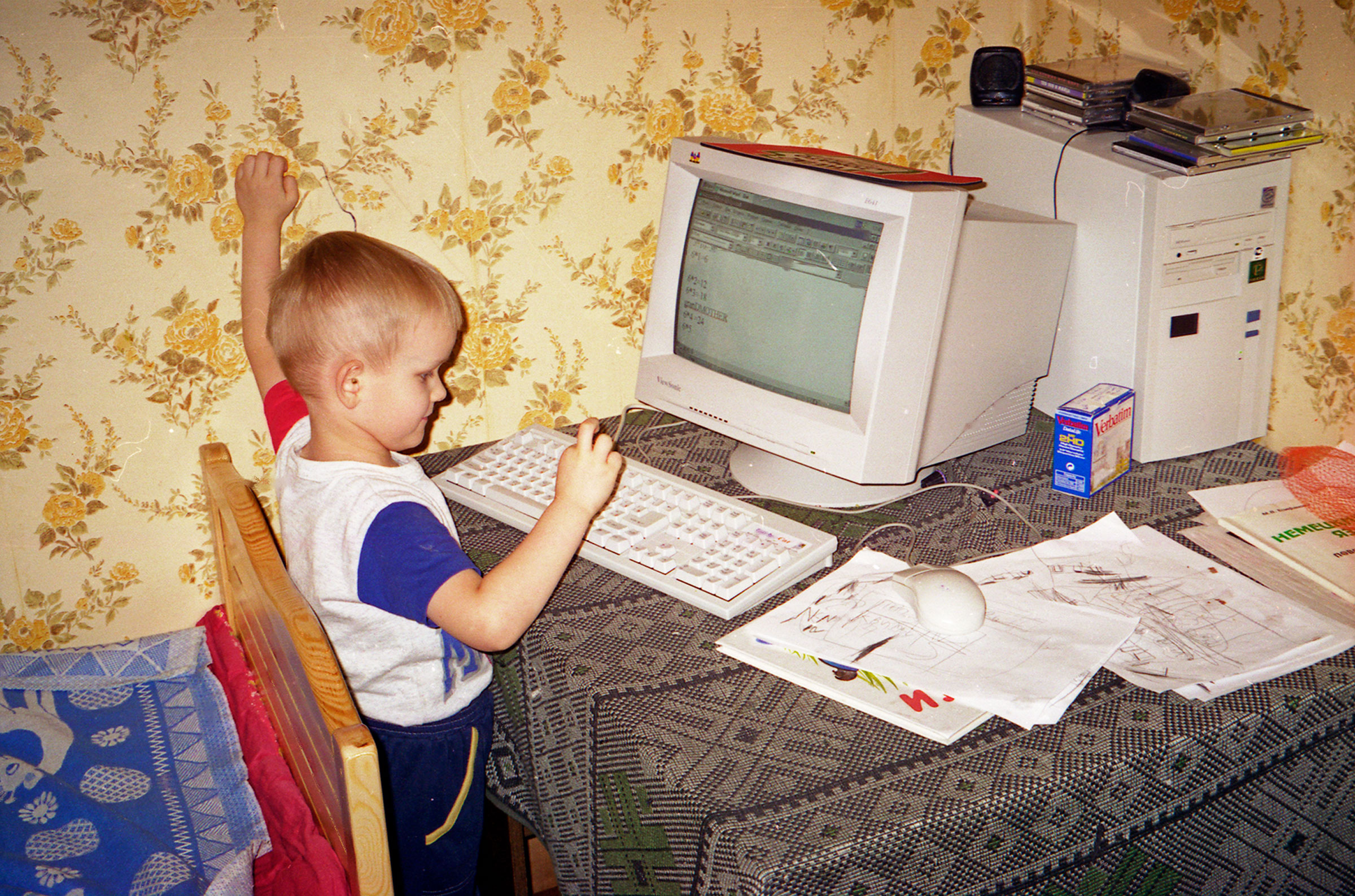“I’ve been yelling a lot, and sometimes that yelling does feel like howling into the wind”
......... The war is personal to Buterin, who has both Russian and Ukrainian ancestry. He was born outside Moscow in 1994 to two computer scientists ........ At 4, he inherited his parents’ old IBM computer and started playing around with Excel spreadsheets. At 7, he could recite more than a hundred digits of pi, and would shout out math equations to pass the time. By 12, he was coding inside Microsoft Office Suite. The precocious child’s isolation from his peers had been exacerbated by a move to Toronto in 2000, the same year Putin was first elected. His father characterizes Vitalik’s Canadian upbringing as “lucky and naive.” Vitalik himself uses the words “lonely and disconnected.” ........ Vitalik soon began writing articles exploring the new technology for the magazine Bitcoin Weekly, for which he earned 5 bitcoins a pop (back then, some $4; today, it would be worth about $200,000). ..... At 18, he co-founded Bitcoin Magazine and became its lead writer, earning a following both in Toronto and abroad. “A lot of people think of him as a typical techie engineer,” says Nathan Schneider, a media-studies professor at the University of Colorado, Boulder, who first interviewed Buterin in 2014. “But a core of his practice even more so is observation and writing—and that helped him see a cohesive vision that others weren’t seeing yet.” ........ The blockchain, he thought, could serve as an efficient method for securing all sorts of assets: web applications, organizations, financial derivatives, nonpredatory loan programs, even wills. Each of these could be operated by “smart contracts,” code that could be programmed to carry out transactions without the need for intermediaries. A decentralized version of the rideshare industry, for example, could be built to send money directly from passengers to drivers, without Uber swiping a cut of the proceeds. ....... In 2013, Buterin dropped out of college and wrote a 36-page white paper laying out his vision for Ethereum: a new open-source blockchain on which programmers could build any sort of application they wished. .......... Within months, a group of eight men who would become known as Ethereum’s founders were sharing a three-story Airbnb in Switzerland, writing code and wooing investors. ........ The ensuing conflicts left Buterin with culture shock. In the space of a few months, he had gone from a cloistered life of writing code and technical articles to a that of a decisionmaker grappling with bloated egos and power struggles. ........ Buterin still does not present stereotypical leadership qualities when you meet him. He sniffles and stutters through his sentences, walks stiffly, and struggles to hold eye contact. He puts almost no effort into his clothing ....... Buterin is wryly funny and almost wholly devoid of pretension or ego. He’s an unabashed geek whose eyes spark when he alights upon one of his favorite concepts, whether it be quadratic voting or the governance system futarchy. Just as Ethereum is designed to be an everything machine, Buterin is an everything thinker, fluent in disciplines ranging from sociological theory to advanced calculus to land-tax history. (He’s currently using Duolingo to learn his fifth and sixth languages.) He doesn’t talk down to people, and he eschews a security detail. ....... Alexis Ohanian, the co-founder of Reddit and a major crypto investor, says being around Buterin gives him “a similar vibe to when I first got to know Sir Tim Berners-Lee,” the inventor of the World Wide Web. “He’s very thoughtful and unassuming,” Ohanian says, “and he’s giving the world some of the most powerful Legos it’s ever seen.” ............ There was the ICO boom of 2017, in which venture capitalists raised billions of dollars for blockchain projects. There was DeFi summer in 2020, in which new trading mechanisms and derivative structures sent money whizzing around the world at hyperspeed. And there was last year’s explosion of NFTs: tradeable digital goods, like profile pictures, art collections, and sports cards, that skyrocketed in value. ........ Proof of Humanity, which awards a universal basic income—currently about $40 per month—to anyone who signs up. ...... Inequities have crept into crypto in other ways, including a stark lack of gender and racial diversity. ........ frustrated users are decamping to newer blockchains like Solana and BNB Chain, driven by the prospect of lower transaction fees, alternative building tools, or different philosophical values. ........ On his blog and on Twitter, you’ll find treatises on housing; on voting systems; on the best way to distribute public goods; on city building and longevity research. ........ His blog is a model for how a leader can work through complex ideas with transparency and rigor, exposing the messy process of intellectual growth for all to see, and perhaps learn from. .......... He sees the technology as the most powerful equalizer to surveillance technology deployed by governments (like China’s) and powerful companies (like Meta) alike.Disparities in economic success between men and women are far larger once marriage+children enter the picture. Synthetic wombs would remove the high burden of pregnancy, significantly reducing the inequality.https://t.co/Zpin8tTlR6
— vitalik.eth (@VitalikButerin) January 18, 2022
The quote tweets on the new time article about me are truly amazing.
— vitalik.eth (@VitalikButerin) March 18, 2022
These are barely even cherry picked, it's pretty much one piece of awesome after another. Highly recommend scrolling. https://t.co/teyd3ROqrT pic.twitter.com/BDzbwvekhw
I didn't even know who Tom Brady is, had to ask people around me. My best guess was that he was the actor from Mission Impossible. pic.twitter.com/MLWVcbtPHc
— vitalik.eth (@VitalikButerin) March 18, 2022
Ukrainians are far from the only ones suffering from war. Also people in Yemen, Ethiopia... just as human as Ukrainians and you are.
— vitalik.eth (@VitalikButerin) March 9, 2022
This is NOT a valid excuse to not care about Ukrainians today. But it does mean we should self-reflect and extend our compassion to others too.
Blockchain voting is overrated among uninformed people but underrated among informed people . .
Crypto Cities




No comments:
Post a Comment